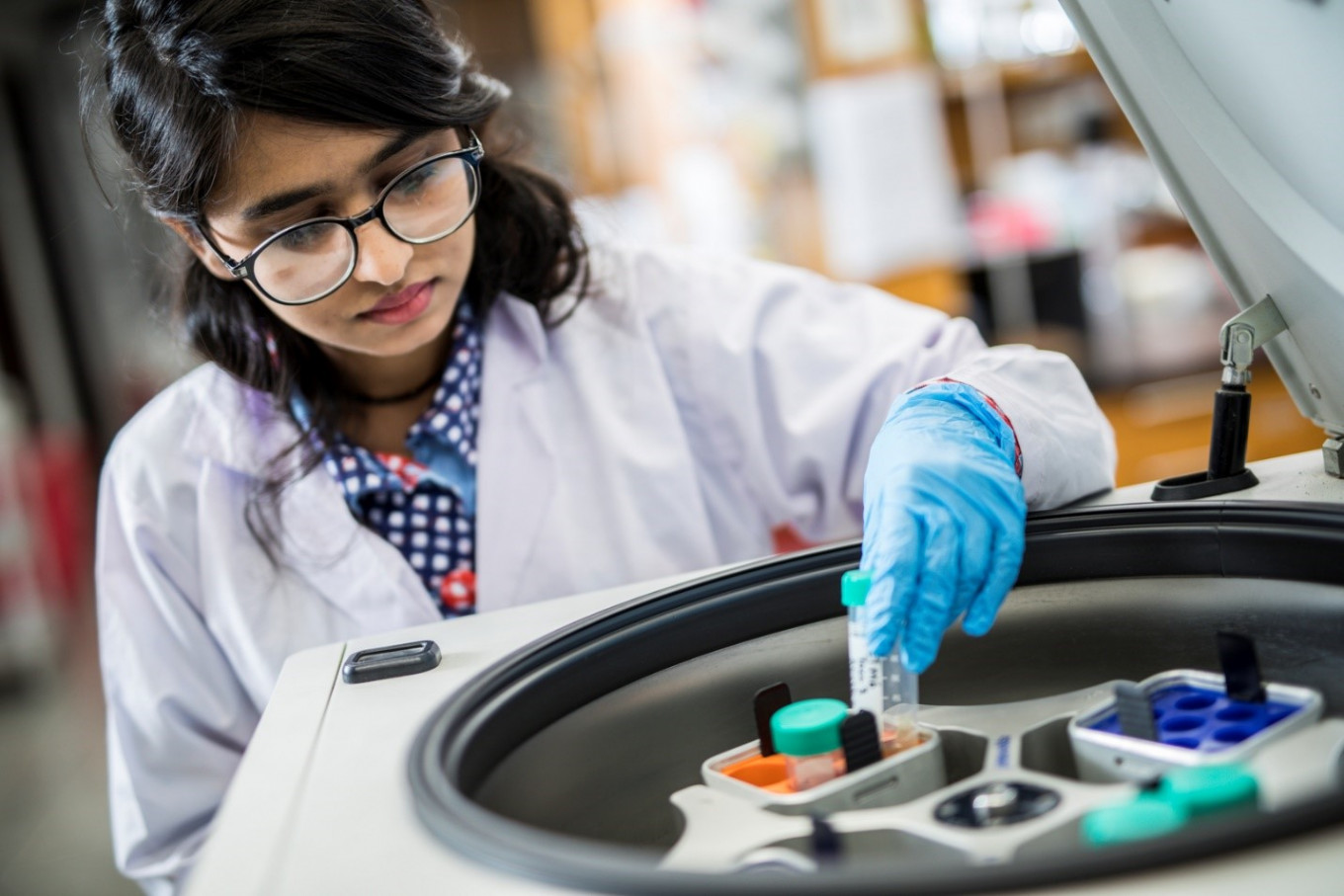Popular Reads
Top Results
Can't find what you're looking for?
View all search resultsPopular Reads
Top Results
Can't find what you're looking for?
View all search resultsGlobal Women in STEM scholars share stories of studying science in the UK
Societies across the world are facing a multitude of challenges. These challenges require a diversity of ideas, opinions and experiences to overcome them.
Change text size
Gift Premium Articles
to Anyone
S
ocieties across the world are facing a multitude of challenges. These challenges require a diversity of ideas, opinions and experiences to overcome them. The area of science has long been a male dominated arena. Globally, women comprise 29 percent of the STEM workforce. While the number of women enrolling in STEM courses is rising, more can be done to level the playing field, and support more women into STEM courses.
Scholarships that cater to the needs of scientists go a long way in supporting their academic and professional careers. The British Council's Global Women in STEM program, for example, is a full scholarship that enables female STEM students in Asia to apply for top courses at the UK’s leading universities.
One of them is Dewi Norytyas Prihatiningrum, a policy analyst in the Industry Ministry. While her friends went on to pursue public policymaking and economy-related subjects, Dewi decided to get a master's degree in Sustainable Water Environment at the University of Glasgow.
"I think it is important to us too, as policy analysts in a governmental organization, to know the scientific reason behind policymaking because sometimes we discuss a lot about sustainability, the economy and development but not the scientific background behind the policies. So we need a bridge between science and for scientific reasoning to be taken into the policy that we're making," she explained in an interview with The Jakarta Post.
A part of her motivation came from her previous project on the revitalization of the Citarum watershed. The project involved an extensive analysis of water quality and industrial wastewater pollution. Thus, they required scientists from outside the agency to handle the work.
"Every time we have a science-related project, we mostly hire other people to do the scientific study. So, I want to fill that gap. Why do we not know about how to arrange scientific study in our own projects?" Dewi added.
After some consideration, the Urban and Regional Planning Engineering graduate applied for a master's degree at a UK university. "Universities in the UK are well known for their quality, and many of them are in the top 100 of universities around the world," Dewi said," They have a high-quality education system, as well as the proper facilities."
"Scotland itself has fantastic landscapes and the cost of living here is not as expensive compared with other places in the UK," Dewi continued. "Also, I wear the hijab, so people will see that I'm a Muslim based on my appearance. The UK is known to be a safe country for Muslims, so I think it's the right choice for me to pursue a master's degree".
Agatha Mia Puspitasari is another Global Women in STEM awardee from Indonesia. Unlike her Glasgow counterpart however, she is a student of Biomedical Sciences at Liverpool John Moores University (LJMU).
When she departed for the UK, Agatha had been a research assistant at the Eijkman Institute as part of its malaria pathogenesis unit for six years. The vast amount of malaria-related research and projects at UK universities attracted her into studying there. “Here, we are able to perform a lot of experiments thanks to the cutting-edge equipment that they have,” Agatha said in her interview.
Agatha is also grateful for the support she gained outside of class. Her supervisor, for example, provides consultations and assists students in finding job vacancies and more. "He facilitates us whenever he has time. For example, if you want to consult about your future studies, like taking a PhD or maybe asking about projects —even your final research."
Her professors are not the only part of the university that have made Agatha feel welcome throughout her stay. "I'm grateful that I have lovely classmates. I ask them to check my essays to ensure they are grammatically correct or have a good structure. They check and review my papers, and I get good marks because of their help. Also, after presentations, they would say things like 'you did a very good job.'"
"They support me, even though I'm an international student. But maybe because they have a lot of international students, they think it's a normal thing for them," Agatha concluded.
Once she has finished with her studies, Agatha said, she will return to the Eijkman Institute and initiate a collaboration between it and LJMU.
You can visit https://bit.ly/IDWomenInSTEM for more information on the Women in STEM scholarships.










